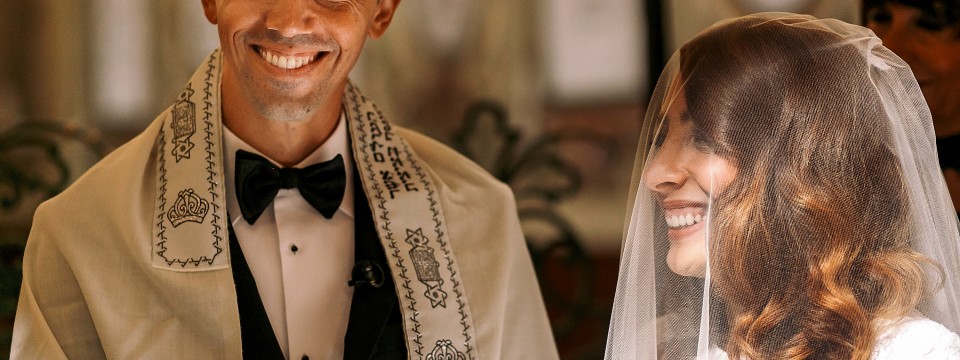Jewish marriage is the cornerstone of the Jewish religion. It is arguably fundamental to the prosperity and survival of the Jewish religion and communities. Thus Jewish marriage is more than just a party or a tieing of the knot. The Jewish religion is extremely family centric and thus Jewish marriage provides the hub of this close family unit.
Jewish Marriage is highly revered and strongly encouraged in Judaism. In fact, one must be married in order to become a Rabbi. Judaism’s high view of marriage derives from its view of the home and family as the center of religious life.
Judaism traditionally considers marriage to be the ideal state of personal existence; a man without a wife, or a woman without a husband, is considered incomplete.
Jewish marriage also allows for families to come together. The respective parents can often form a special bond as part of an extended family.
A Jewish marriage will often be perceived as not just the coming together of two individuals but helping to ensure the long-term survival of Jewish traditions and bring families and communities together as one. This is also why many Jewish families will want to see their children married under the Chuppah.
The Jewish ceremony is a joyous and amazing occasion with flowers, singing and tradition. Please see more information about the Jewish Wedding Ceremony here.
The Ketubah is very important and the legal entity of the Jewish marriage. It is in fact the most important and fundamental part of the day of a Jewish Wedding is in fact arguably the signing of the Ketubah. The Ketubah essentially is the marriage contract in Jewish law and you can read more about it here.
In a Jewish marriage, the Chatan (groom) accepts upon himself various responsibilities, which are detailed in the Ketubah. His principal obligations are to provide food, shelter and clothing for his wife, and to be attentive to her emotional needs. The protection of the rights of a Jewish wife is so important that the marriage may not be solemnized until the contract has been completed.
In Jewish law, Jewish Marriage consists of two separate acts, called kiddushin (or erusin, the engagement ceremony) and nissu’in, the actual wedding. Kiddushin changes the couple’s personal status, while nissu’in brings about the legal consequences of the change of status. In Talmudic times, these two ceremonies usually took place about a year apart. The bride lived with her parents until the actual marriage ceremony, which would take place in a room or tent that the groom had set up for her. Later in history, the two ceremonies took place as a combined ceremony.








